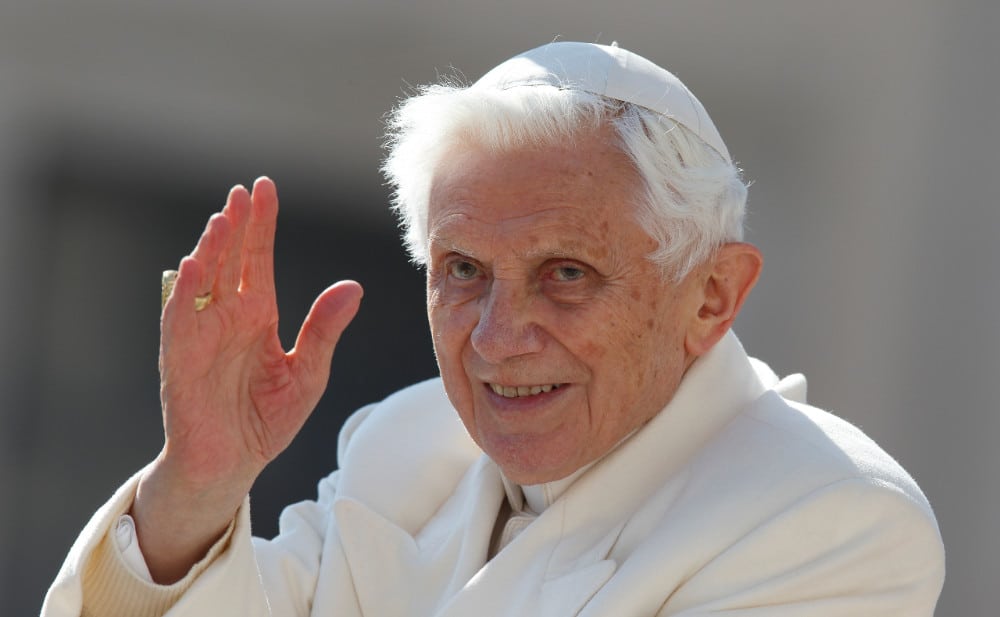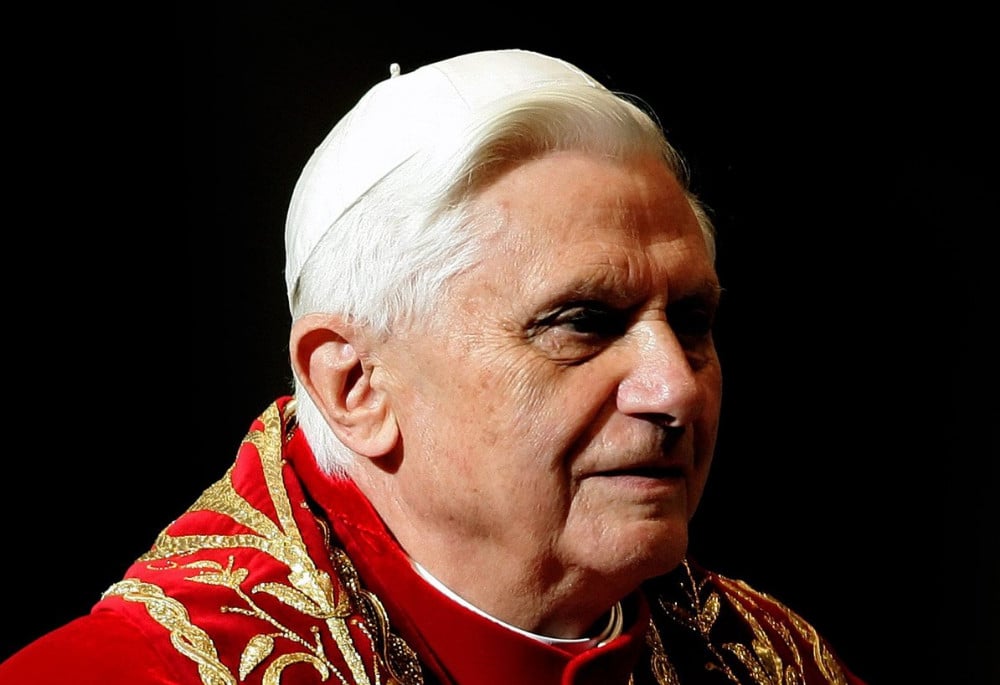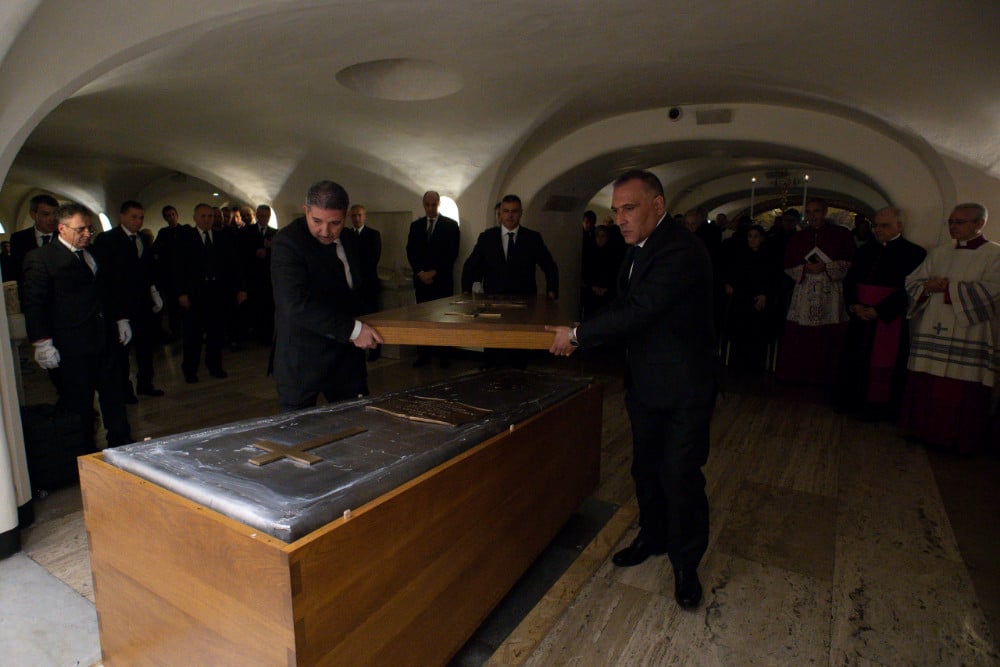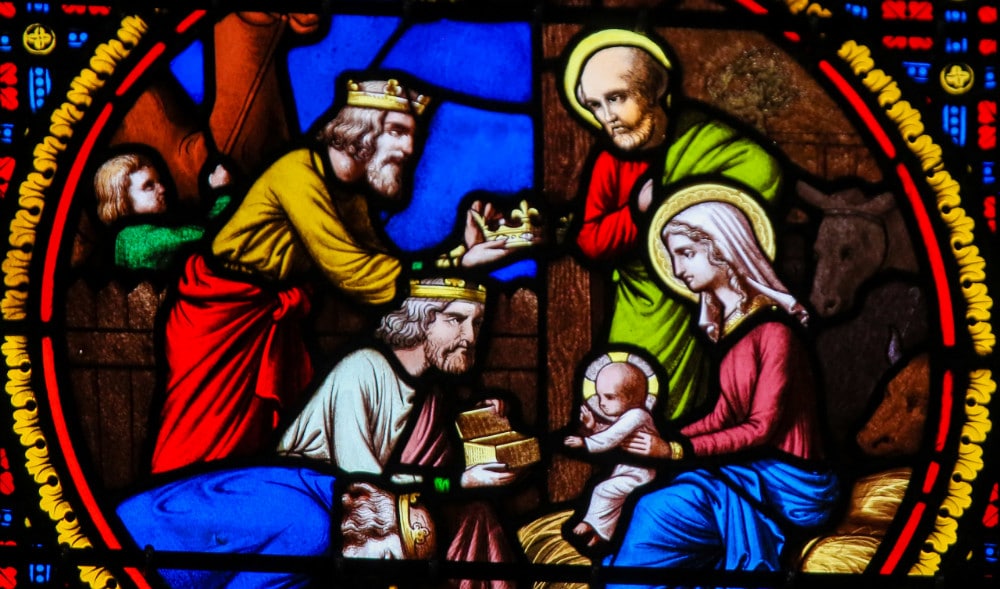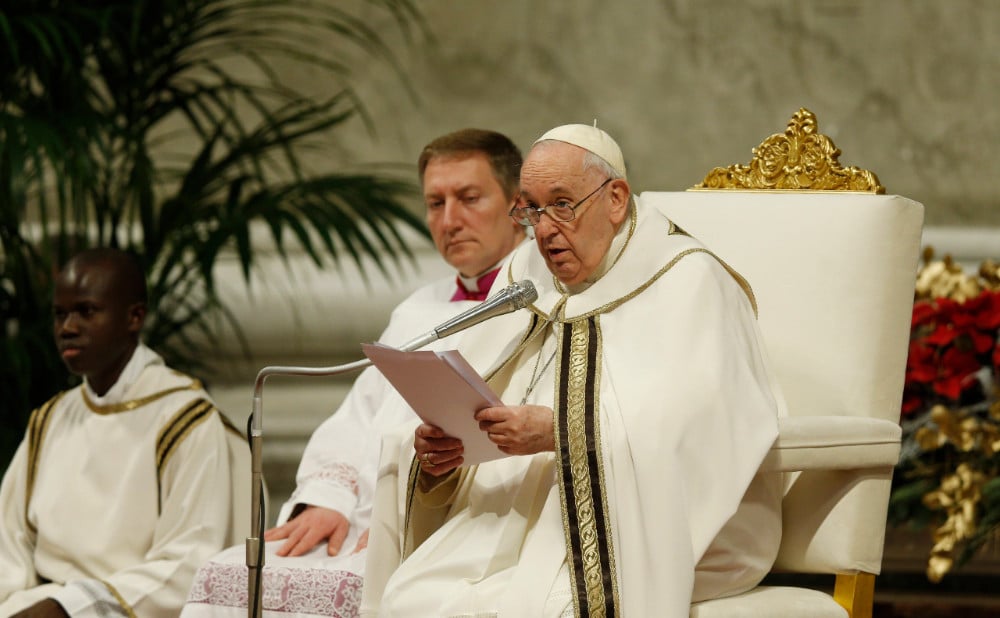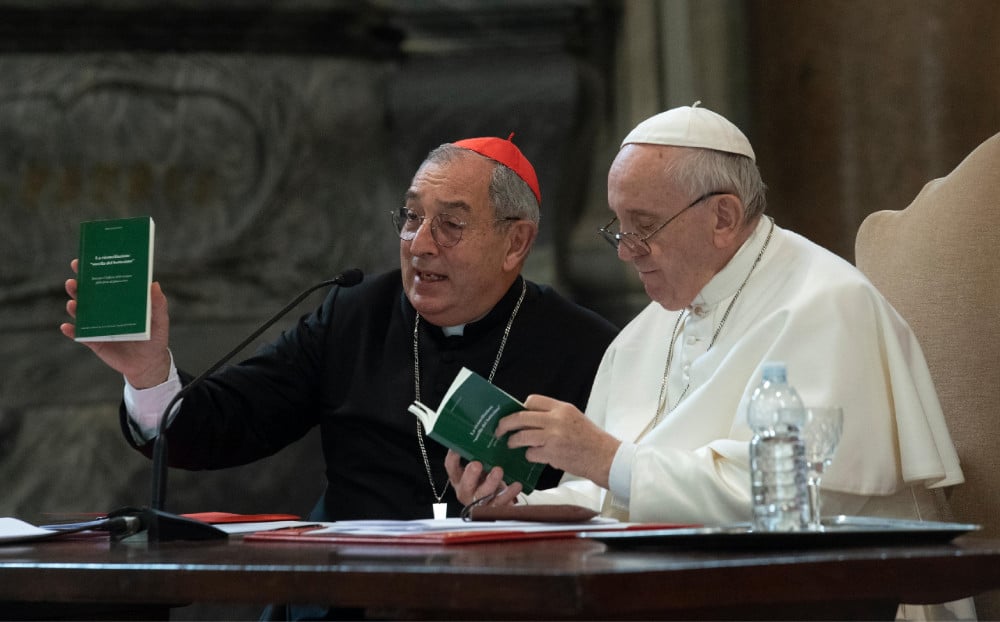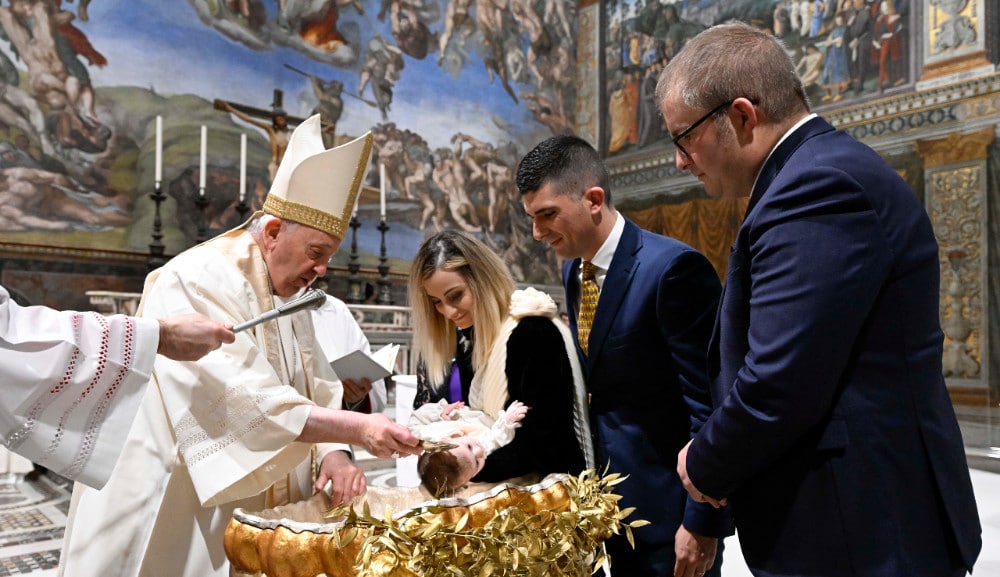Deep in the predawn dark of Dec. 31, the nurse attending Pope Benedict XVI’s bedside heard him utter a soft and clear sentence: “Signore ti amo!” — Lord, I love you. They would be his last words.
A bed of pain. A voice in the dark. A cry of love. To those who know Benedict’s writings, the scene cannot help but conjure a passage from his early book, “Introduction to Christianity.” There, he described a moment in Paul Claudel’s play “The Satin Slipper,” in which a man has been set adrift on an open sea, bound to a piece of wood that must eventually succumb to the rage of the waters. Ratzinger saw this as a perfect image for the experience of faith: “Fastened to the cross — with the cross fastened to nothing, drifting over the abyss.” In the midst of this turmoil, a voice is raised in the darkness, and the man speaks: “Lord, I thank you for binding me thus to you.”
For all the breadth and depth of Benedict’s texts, for all the years he spent working in the Congregation for the Doctrine of the Faith, for all his service to the Church as pope, for all the graces of the silent years after his resignation, these two tableaux — the one he wrote and the one he lived — form a single frame that contains the heart of Benedict’s life and his theological vision.
The dark
First, the dark. Benedict’s thought is marked by a deep conviction that the fall of Adam and Eve stirred up clouds of dust and debris that have dimmed the once-clear eye of the human mind. “At present we see indistinctly, as in a mirror” (1 Cor 13:12), to such an extent that everything we experience can be overshadowed by uncertainty and swallowed by the darkness of doubt. Philosophers question the reality of the senses; scientists argue that causality is an illusion; theologians speak of God as a comforting myth for children.
But this is not the end of the story. “There is no escape from the dilemma of being a man,” he says elsewhere in “Introduction to Christianity.” Skepticism has no final certainty; the darkness of doubt swallows even itself. Every human being must ask if perhaps the truth is real after all.
The cross
Then, the cross. God in his mercy does not leave the clouded human heart to its fate. Jesus Christ gives fallen humanity a strange and beautiful new ground for certainty: his own crucified body. The darkened human understanding wants to believe that the truth is not real, or that the truth is a weapon, or that the truth is something I create from moment to moment. The triumph of the Cross reveals that the Truth is a person, who gives himself without limit for you and for me. Christian certainty — the certainty of faith — begins from this “encounter with an event, a person, which gives life a new horizon and a decisive direction” (Deus Caritas Est, No. 1).
The certainty of faith that comes from Jesus Christ and his cross does not produce the kind of knowledge that becomes my own personal possession, nor does it mean that I will win every argument and convince every scoffer, nor can it be reduced to platitudes. Christian knowledge has the urgency of a man adrift at sea; we cling to the cross because our life depends on it.
Bound to the cross, awash with the uncertainties and difficulties of life, we discover something astonishing. Jesus Christ is the Word through whom “all things came to be;” he is the life that is “the light of the human race;” and “the light shines in the darkness, and the darkness has not overcome it” (Jn 1:3-5). God did not make the world to be a puzzle or a trap; he made it to be understood, to be known and to be loved. The Christian who is in one sense bound to Christ and his cross receives from God the most breathtaking freedom of heart and mind. We do not have to invent our own meaning or somehow struggle to be satisfied with a world that means nothing; the Christian eye is set free to look at everything in the world with the confidence that it makes sense in the Word, that there is a truth in things that is worth discovering, a goodness worth loving, a beauty worth contemplating.
This confidence that Jesus Christ is the ground for human understanding accounts for the remarkable expanse of Benedict’s intellectual gaze, and for the utter absence of anxiety in his writings. He did not see Christianity as a small set of embattled truths to be clutched to the chest and defended against all comers. Bound to the freedom of the Cross, he was able to engage with the most diverse thinkers, ideas and movements without rancor or defensiveness; in reading his writings one always has the sense that he was looking not to be right, but to find the Truth.
The cry of love
Lastly, the cry of love. “Being Christian is not the result of an ethical choice or a lofty idea” (Deus Caritas Est, No. 1); it is not abstract or distant; it is a cry of love or it is nothing. The gift of faith brings with it the certainty that we are not alone, that the Truth who redeems us is present to us at every moment, and that being joined to him means that we are joined to the whole pilgrim people of God through the ages, who accompany us too in our joys and sufferings. Benedict’s love of the liturgy and his intimately personal Eucharistic devotion arise from the essentially relational nature of Christianity. I cannot invent my own form of worship or my own Church any more than I can invent a totally private language; Christ gives himself to me on the Cross, and in receiving him in love I receive the whole community of the redeemed as beloved brothers and sisters, who learn to speak together the words of love that we have learned from Jesus Christ.
God gave Benedict a remarkable grace in allowing him to foreshadow his own deathbed in his early book, and then allowing him to live out the reality he described in his own body. Even his death is a testament to the essential convictions that moved his life: that there is no darkness where the Word has not shone his light, no loneliness where Christ has not already come to meet us. As Benedict himself said of Pope John Paul II in a pre-Christmas address to Roman Curia in 2005, “the Holy Father gave us great things; equally important is the lesson he imparted to us from the chair of suffering and silence.” Signore ti amo.
Father Gabriel Torretta, OP, is a Dominican priest who is working on a doctorate in medieval history at the University of Chicago.

